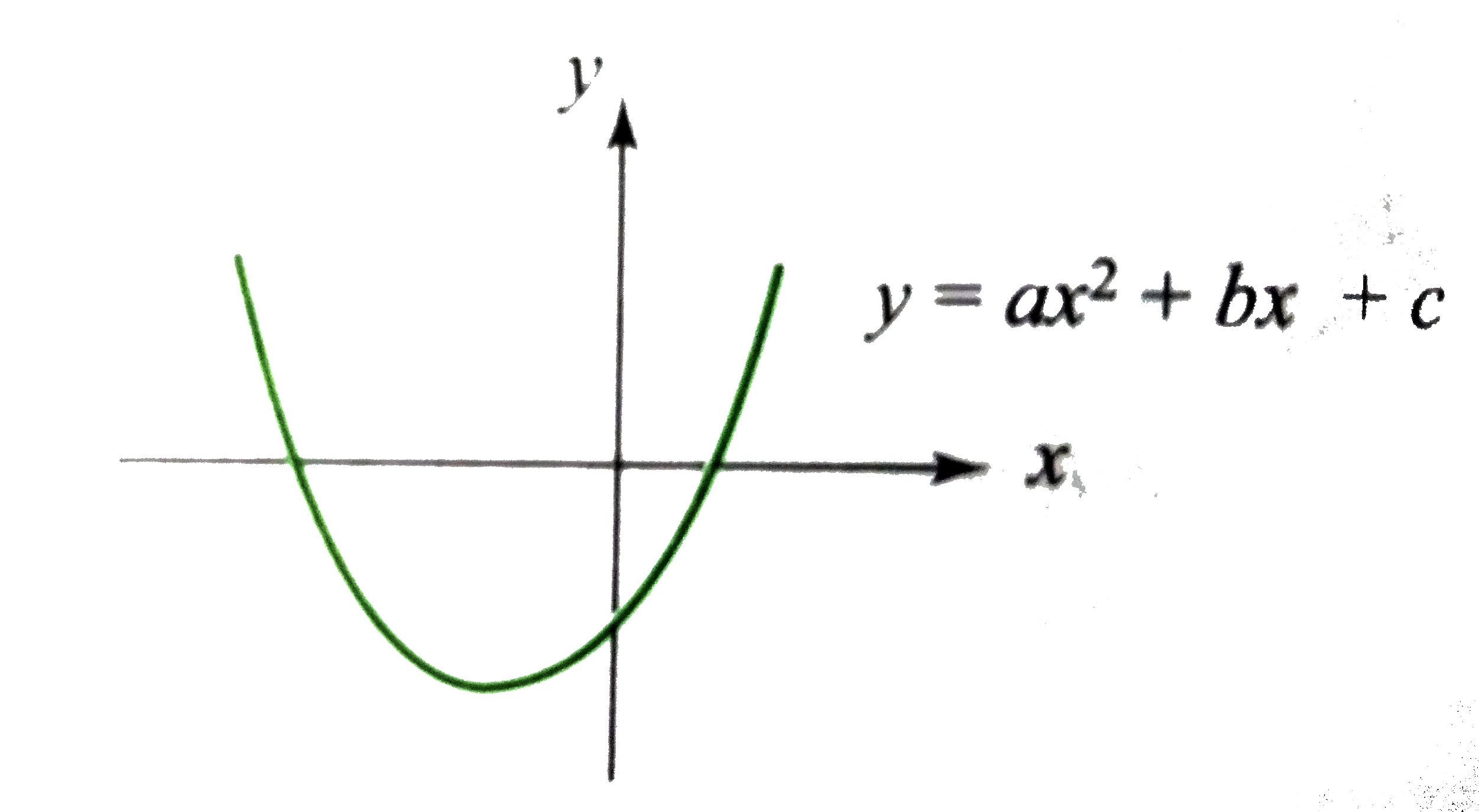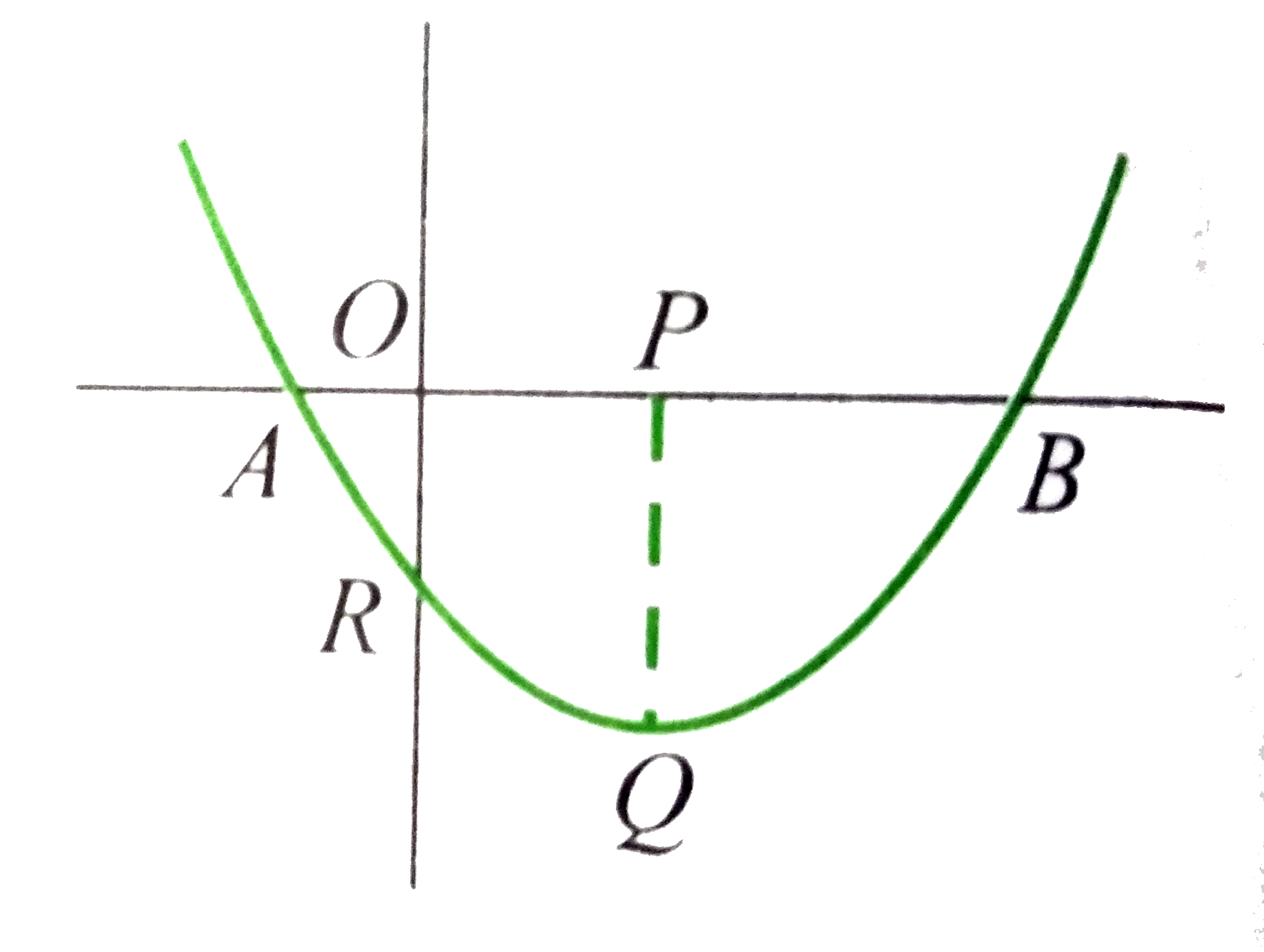Complete Solutions to Exercise (Multiple) of chapter THEORY OF EQUATIONS of Class 12 book with complete answers and questions
| Class 12 | MATHS |
| Chapter | THEORY OF EQUATIONS |
| CENGAGE NEW | Exercise (Multiple) |
| Number Of Questions | 38 |
| Academic Year | 2023-24 |
if `c!=0` and the equation `p/(2x)=a/(x+c)+b/(x-c)` has two equal roots, then p can be
02:08View SolutionIf `alpha,beta` are the roots of the quadratic equation `a x^2+b x=c=0` , then which of the following expression will be the symmetric function of roots `|logalpha/beta|` b. `alpha^2beta^5+beta^2alpha^5` c. `t a n(alpha-beta)` d. `(log1/alpha)^2+(logbeta)^2`
02:11View SolutionIf one root of the quadratic equation `px^2 +qx + r = 0 (p != 0)` is a surd `sqrta/(sqrta+sqrt(a-b),` where `p, q, r; a, b` are all rationals then the other root is -
02:44View SolutionIf a,b,c are in G.P. then the roots of the equation `a x^2 + bx + c = 0`are in ratio
04:09View Solutionthe roots of the equation `(a+sqrt(b))^(x^2-15)+(a-sqrt(b))^(x^2-15)=2a` where `a^2-b=1` are
04:28View SolutionIf the equation `x^2+px+q=0` and `x^2+p'x+q'=0` have a common root show that it must be equal to `(pq'-p'q)/(q-q')` or `(q-q')/(p'-p)`
01:59View SolutionIf the quadratic equation `a x^2+b x+c=0(a >0)` has `sec^2thetaa n dcos e c^2theta` as its roots, then which of the following must hold good? `b+c=0` b. `b^2-4a cgeq0` c. `ccgeq4a` d. `4a+bgeq0`
08:12View SolutionGiven that `alpha,gamma` are roots of the equation `A x^2-4x+1=0,a n dbeta,delta` the roots of the equation of `B x^2-6x+1=0,` such that `alpha,beta,gamma,a n ddelta` are in H.P., then a.`A=3` b. `A=4` `B=2` d. `B=8`
04:24View SolutionIf `cos^4theta+alpha` are the roots of the equation `x^2+2b x+b=0a n dcos^2theta+beta,sin^2theta+betaa r e` the roots of the equation `x^2+4x+2=0,` then values of `b` are `2` b. `-1` c. `-2` d. `2`
14:00View SolutionIf `alpha,beta` are the roots of the equation `ax^2 + bx+c=0` then the roots of the equation `(a + b + c)x^2-(b + 2c)x+c=0` are
04:00View SolutionIf every pair of equations `x^2+ax+bc=0, x^2+bx+ca=0` and `x^2+cx+ab=0` has a common root then their sum is
02:24View SolutionIf the equation `4x^2-x-1=0a n d3x^2+(lambda+mu)x+lambda-mu=0` have a root common, then he rational values of `lambdaa n dmu` are `lambda=(-3)/4` b. `lambda=0` c. `mu=3/4` b.`mu=0`
03:27View SolutionIf `x^3+3x^2-9x+c` is of the form `(x-alpha)^2(x-beta)` then `c` is equal to
05:47View SolutionIf the equation whose roots are the squares of the roots of the cubic `x^3-a x^2+b x-1=0` is identical with the given cubic equation, then `a=0,b=3` b. `a=b=0` c. `a=b=3` d. `a ,b ,` are roots of`x^2+x+2=0`
07:26View SolutionIf ` f(x) ` is a polynomial of degree 4 with rational coefficients
and touches x - axis at ` (sqrt(2) , 0 )` , then for the equation
` f(x) = 0`,01:29View Solution`(x^3+1/x^3)-3(x^2+1/x^2)+6(x+1/x)-7=0`
06:02View Solution`2x^2+6xy+5y^2=1, then`
02:45View SolutionIf ` f(x) = ax^(2) + bc + c ` , where ` a ne 0, b ,c in ` R , then which of
the following conditions implies that f(x) has real roots?02:05View SolutionIf `(x^(2) + 5)/(2) = x - 2` cos (m + nx)` has at least one real root, the
02:50View SolutionLet three quadratic equations ` ax^(2) - 2bx + c = 0, bx^(2) - 2 cx + a = 0`
and `cx^(2) - ax + b = 0 `, all have only positive roots. Then ltbr. Which of these are always ture?03:43View SolutionConsider the quadratic equation `x^2 + 2(a+1)x + 9a-5 = 0` have
08:27View SolutionIf `a ,b ,c in Ra n da b c<0` , then equation `b c x^2+2b+c-a)x+a=0h a s` both positive roots both negative roots real roots one positive and one negative root
01:27View SolutionThe graph of the quadratic trinomial `u=a x^2+b x+c` has its vertex at (4, -5) and two x-intercepts, one positive and one negative. Which of the following holds good? `a >0` b. `b<0` c. `<0` d. `8a=b`
02:38View SolutionLet `a ,b ,c in Q^+` satisfying `a > b > cdot` Which of the following statements (s) hold true of the quadratic polynomial `f(x)=(a+b-2c)x^2+(b+c-2a)x+(c+a-2b)?` The mouth of the parabola `y=f(x)` opens upwards Both roots of the equation `f(x)=0` are rational The x-coordinate of vertex of the graph is positive The product of the roots is always negative
04:23View SolutionLet `f(X) = ax^(2) + bx + c `. Consider the following diagram
 . 01:54View Solution
. 01:54View SolutionGraph of ` y = ax^(2) + bx + c ` is as shown in the figure . If ` PQ= 9,`
OR = 5 and OB = 2.5, the which of the following is /are ture?
 07:04View Solution
07:04View Solution`ax^2 + bx + c = 0(a > 0),` has two roots `alpha and beta` such `alpha < -2 and beta > 2,` then
03:01View SolutionIf the equation `ax^(2) + bx + c = 0, a,b, c, in` R have non -real
roots, then01:55View SolutionIf `cos x - y^(2) - sqrt(y - x ^(2) - 1 )ge 0 ` , then
02:18View SolutionIf `a x^2+(b-c)x+a-b-c=0` has unequal real roots for all `c in R ,t h e n` `b<0 a >0`
07:37View SolutionIf `(x^2+a x+3)//(x^2+x+a)` takes all real values for possible real values of `x ,` then `4a^2+39<0` b. `4a^5+39 >-0` c. `ageq1/4` d. `a<1/4`
06:28View SolutionIf the range of function ` f(x) = (x + 1)/(k+x^(2))` contains the interval
[-0,1] , then values of k can be equal to03:51View SolutionConsider equation `(x - sin alpha) (x-cos alpha) - 2 = 0` . Which of the following is /are true?
View SolutionIf the roots of the equation, `x^3 + px^2+qx-1 = 0` form an increasing` G.P.` where` p` and `q `are real,then
04:13View SolutionConsider a quadratic equation `ax^2 + bx + c = 0` having roots `alpha, beta`. If `4a + 2b + c > 0,a-b+c < 0 and 4a - 2b + C > 0` then `|[alpha] + [beta]|` can be {where [] is greatest integer}
03:12View SolutionThe equaiton `((x)/(x+1))^(2) + ((x)/(x-1))^(2) = a(a-1)` has
05:01View Solutionlf the quadratic equations `x^2+bx+c=0` and `bx^2+cx+1=0` have a common root then prove that either `b+c+1=0` or `b^2+c^2+1=bc+b+c`.
04:44View SolutionIf the inequality `cot^(2)x + (k +1) cot x - (k-3) < 0` is true for at least one `x in (0, pi//2)`, then `k in `.
06:49View Solution
Exercise (Multiple) questions and complete solutions for chapter THEORY OF EQUATIONS of CENGAGE MATHS (HINGLISH) of Class 12
All Exercises from CENGAGE NEW Class 12 MATHS THEORY OF EQUATIONS
- Comprehension
- Examples
- Exercise (Comprehension)
- Exercise (Matrix)
- Exercise (Multiple)
- Exercise (Numerical)
- Exercise (Single)
- Exercise 2.1
- Exercise 2.10
- Exercise 2.11
- Exercise 2.12
- Exercise 2.13
- Exercise 2.2
- Exercise 2.3
- Exercise 2.4
- Exercise 2.5
- Exercise 2.6
- Exercise 2.7
- Exercise 2.8
- Exercise 2.9
- JEE Advanced Previous Year
- JEE Main Previous Year
- Multiple Correct Answer
- Single correct Answer
